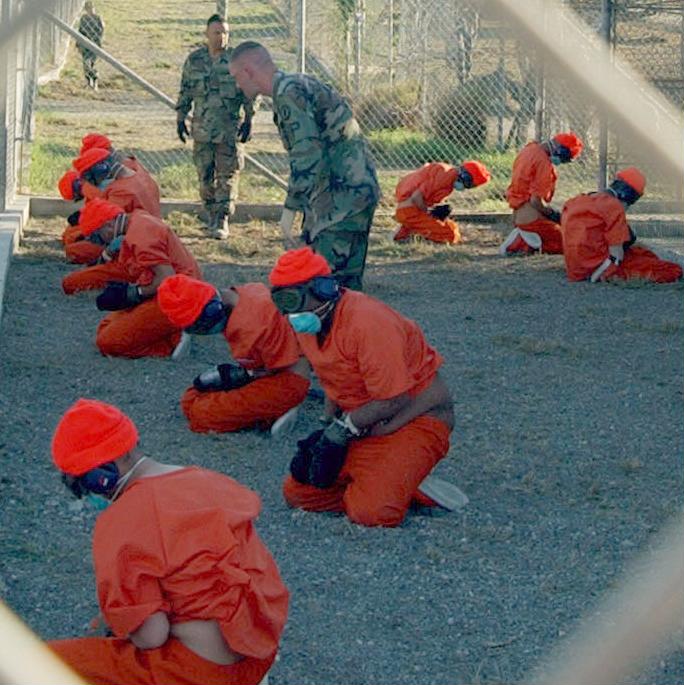When we think of change, we tend to think in linear terms. We expect things to change into the future more or less as things have changed in the past. However, very few things behave this way. The world operates stochastically within a range of possibilities that themselves are cyclical, exponential or chaotic, but rarely linear. It's therefore a mistake to assume that things will evolve linearly. It's also a mistake to think that things that operate on a fairly predictable and linear manner in the short term are likely to be stable over time. Yet, it's a popular misconception, especially when it comes to human affairs.
Politics is full of linear thinking. Policies are implemented with little to no regard to secondary and tertiary effects. The thinking is always confined to the immediate and linear. Doubling the tax rate will return double the tax revenue. Two socks across our faces is twice as good as one sock. Banning something will make it go away. However, things are never this simple, and only tribal thinking is keeping people from seeing this clearly. There are always non-linear effects, and the reason for this is that society is not a hierarchy but a network.
Everybody knows that the direct effect of something like a tax hike is less than linear. Higher taxes foment tax evasion. Whatever the tax is aimed at is never as plentiful after a tax hike as it was before. This is basic knowledge, not denied by anyone. However, it's frequently trivialized. People stick to their linear predictions even when they know that they are false. That's how wishful thinking rots the mind. But the problem of linear thinking doesn't stop at this first and most obvious hurdle. There are secondary effects that are barely visible, and tertiary ones that cannot be predicted in any way.
The secondary effect of taxations and other hurdles to commerce is a shift towards a parallel economy, unfettered by laws and regulations. This too is well known, but often denied, or simply not mentioned. Simple logic tells us that this will happen, yet it is rarely an issue in political discussions.
Tertiary effects are of the kind that only appear vaguely related to bad policies, even when in full view for everybody to see. Ghetto's, gangs, and other sub-cultures come about due to policies that at first don't seem related at all. Cause can only be tentatively established through correlations and similar deep analysis. In the most extreme, tertiary effects can lead to society-altering events such as revolutions and civil war.
In this lies a great warning, but also much hope, because it's the tertiary effects that end up the strongest in the end. Politicians can meddle as much as they want, but they cannot ever establish anything but apparent control. To paraphrase Adam Smith, there is an invisible hand that moves all things, and it cannot be known to any one individual, because the invisible hand is a network, not a hierarchy.
The network knows of political hierarchy, but doesn't necessarily respond to it the way many believe. This is again wilful ignorance on the part of the observer, because everybody knows that people take care of themselves and their family first. They only go along with things that are either to their advantage or seen as impossible to avoid. We know this by observing our neighbours, and by thinking honestly about our own preferences.
This doesn't mean that all nodes in a network are equal. On the contrary, every node is different, both in character and in scope of influence. This is at the root of the network's strength and its unpredictability. There's no way of knowing the exact nature of every node in the network, so there's no way to predict its response to various impulses. However, its not impossible to direct the network towards ends that benefit us rather than the political and economic elite.
The first thing to realize is that we don't have to influence very many people in order to improve our corner of the network. We don't have to change everybody's mind. We don't have to protest in the streets. We don't have be a leader. We don't have to be radical, and we don't have to be wild. All we need to do is to lead by example, and others will follow, provided we are successful in our little way.
Success is a subjective measure. It can be hard to say exactly who's successful and who isn't. My youngest son in Norway thinks of me as less successful than my brothers. Yet, here I am in Porto, very much my own boss, and with fine foods, great wines and a pleasant climate. How am I less successful than my architect brother, tied to his desk at his office in Oslo? How am I less successful than my twin brother, with his complicated schemes and demanding wife? How am I less successful than my older brother, who lives very much like me, but in a colder climate and with more stress?
I'm not making any argument against my son in Norway. He's right in a way. However, I'm successful enough to have people ask me for my advice every now and again, including my children in Norway, and that's all it takes to be a force for good.
On my list of people I believe I've influenced in a positive way are all my four children, my wife, my step daughter, and a couple of friends. That's about eight people altogether. Assuming that at least some of these people are successful in their endeavours so that they too influence a handful of people towards liberty, my influence will have reached almost 40 people, and that's how the network effect kicks in.
People, successful in their own way, influence others towards similar ideas and actions. This in turn, influences others who influence others again. A great number of people are not going to be influenced, regardless of what happens, so there's a limit to how many can be reached in this way, but the spread is exponential rather than linear. This means that the effect is pretty much invisible for a long time before it suddenly explodes into sight. Once it's plain to see, there's nothing that anyone opposed to it can do to stop it. However, this doesn't happen over night. Things can look very grim for years on end before, all of a sudden, there's a rapid shift in the way society is organized.
The Bible talks of seven years of tribulation. That's not some random number. Rather, it's roughly how long it takes for an era to come to an end. Things can look hopeless during such transformative years, so it's important to remain hopeful. We must never give in to pessimism. We must instead focus on all the little things that we can do to be an example for those around us. Success is not only measured in material terms. There's a lot of success in being a good parent, a good spouse, a good friend, and of help in little things that make a real difference to our loved ones. If we stay focused and faithful to our beliefs, the network effect takes care of the rest, and we'll find that Karma is a real thing.
 |
| Adam Smith |
By Unknown author - http://www.nationalgalleries.org/object/PG 1472, Public Domain, Link

















